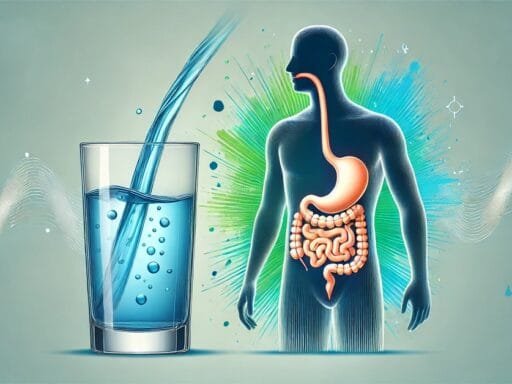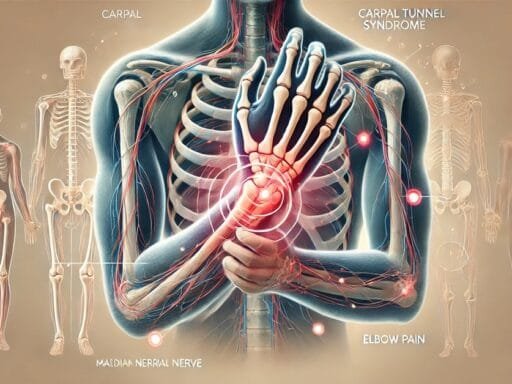1. Introduction
When it comes to boosting energy and performance during a workout, fitness enthusiasts often face a common dilemma: pre workout vs energy drink. Both products are designed to enhance energy levels, focus, and stamina, but which one is more suited for your specific needs? Understanding the key differences between these two options is essential in making an informed decision.
Pre workouts are specially formulated supplements that help improve performance, endurance, and focus, primarily aimed at those engaging in intense exercise routines. On the other hand, energy drinks are commonly consumed for a quick energy boost, with their main goal being to combat fatigue and improve alertness.
Choosing between a pre workout and an energy drink depends on various factors, including your workout type, fitness goals, and personal tolerance to ingredients like caffeine. This article will explore the differences between these two products, their ingredients, benefits, side effects, and how to select the best option for your workout routine. By the end, you’ll have a clearer understanding of whether a pre workout or an energy drink is better suited for your fitness journey.
Table of Contents
- 1. Introduction
- 2. What Are Pre Workouts?
- 3. What Are Energy Drinks?
- 4. Key Differences Between Pre Workout and Energy Drink
- 5. Which One is Better for Your Workout?
- 6. Common Side Effects of Pre Workouts and Energy Drinks
- 7. How to Choose the Right Product for You
- 8. Frequently Asked Questions (FAQ)
- 9. Conclusion
2. What Are Pre Workouts?

Pre workouts are specialized supplements designed to optimize your performance before exercise. These products are packed with ingredients that work together to increase energy levels, enhance focus, and improve endurance during intense workouts. Typically consumed about 20 to 30 minutes before exercising, pre workouts help maximize the impact of your training session.
Key Ingredients in Pre Workouts:
- Caffeine – A central nervous system stimulant, caffeine is the most commonly used ingredient in pre workout formulas. It enhances focus, energy, and alertness, allowing you to push harder during your workouts.
- Creatine – This natural compound helps improve strength and power output by replenishing ATP levels in your muscles, providing more fuel for short bursts of high-intensity activity.
- Beta-Alanine – Known for its ability to buffer lactic acid build-up, beta-alanine reduces muscle fatigue and extends endurance during intense physical activities.
- BCAAs (Branched-Chain Amino Acids) – Essential for muscle recovery, BCAAs reduce muscle breakdown and help promote muscle growth during and after your workout.
- Nitric Oxide Boosters – Ingredients like L-arginine help increase blood flow, ensuring that your muscles receive more oxygen and nutrients during your workout, leading to improved performance and muscle pumps.
Benefits of Pre Workouts:
- Increased Energy – The high caffeine content in most pre workouts delivers a rapid energy boost, helping you overcome any feelings of fatigue before exercising.
- Enhanced Focus – Ingredients like caffeine and tyrosine improve mental clarity and focus, which are crucial for staying concentrated throughout your workout.
- Improved Performance – By increasing strength, endurance, and endurance, pre workouts help you push through longer, harder sessions.
- Faster Recovery – The BCAAs and other recovery ingredients in pre workouts aid in muscle repair, reducing recovery time between workouts.
3. What Are Energy Drinks?

Energy drinks are popular beverages that provide an immediate boost of energy, alertness, and focus. These drinks are often consumed for their caffeine content, which acts as a stimulant to combat fatigue. While energy drinks are not specifically designed for workouts, many athletes and gym-goers use them for a quick pick-me-up before or during exercise.
Common Ingredients in Energy Drinks:
- Caffeine – Like pre workouts, most energy drinks contain caffeine, which stimulates the central nervous system, improving focus and boosting energy levels.
- Taurine – An amino acid often found in energy drinks, taurine plays a role in muscle function, electrolyte balance, and heart health.
- Sugar – Many energy drinks contain high levels of sugar to provide a rapid source of energy. However, high sugar content can lead to crashes after the initial energy spike.
- Electrolytes – Some energy drinks contain electrolytes such as sodium and potassium, which help with hydration, especially during exercise.
Benefits of Energy Drinks:
- Quick Energy Boost – Energy drinks provide an instant surge of energy, making them a convenient option for a rapid lift before exercise or during the day.
- Increased Mental Alertness – The caffeine in energy drinks enhances focus and mental clarity, helping you stay sharp and alert.
- Convenience – Energy drinks are widely available, easy to consume on the go, and don’t require mixing or preparation like pre workouts.
While energy drinks offer a quick energy fix, they are generally not tailored for improving workout performance like pre workouts. Their main focus is on providing a temporary energy boost for daily activities, rather than enhancing muscle strength or endurance.
How to Relieve Elbow Pain from Weight Lifting: A Comprehensive Guide to Recovery and Prevention
Unlocking the Incredible Power of Workout Bench Exercises: Strength, Fat and Much More
4. Key Differences Between Pre Workout and Energy Drink

When comparing pre workout vs energy drink, it’s essential to understand the key differences in their formulation, purpose, and effect on your workout performance. While both can provide a boost of energy, they differ significantly in their ingredients and benefits.
Purpose:
- Pre workouts are specifically formulated to improve performance during high-intensity exercise. They are packed with ingredients like creatine, beta-alanine, and BCAAs that enhance endurance, strength, and recovery.
- Energy drinks, on the other hand, are designed to provide a quick burst of energy and focus. They mainly serve as a pick-me-up for daily activities rather than performance enhancement during workouts.
Ingredients Comparison:
- Pre workouts contain performance-enhancing ingredients like creatine, beta-alanine, and BCAAs, which are not typically found in energy drinks. These ingredients help reduce muscle fatigue, improve strength, and support recovery.
- Energy drinks, in contrast, focus on ingredients like caffeine, taurine, and sugar, which deliver a quick surge of energy but don’t provide the same sustained performance benefits for workouts as pre workouts.
Timing and Dosages:
- Pre workouts are meant to be taken 20-30 minutes before exercising to give your body time to absorb the ingredients and kick in during your workout. The recommended dosage depends on the specific product, but it’s usually one scoop or serving.
- Energy drinks can be consumed anytime for a quick energy boost, not necessarily tied to exercise. They can be consumed before, during, or after a workout, but their impact is more general and not as tailored to workout performance.
Effect on Performance:
- Pre workouts are designed to improve physical performance by increasing energy, endurance, and muscle strength. The ingredients work synergistically to provide a focused, high-intensity workout.
- Energy drinks provide a temporary mental and physical energy boost, but they lack the performance-boosting ingredients like creatine or beta-alanine found in pre workouts. They are better suited for moderate or less intense exercise rather than maximizing workout potential.
When to Use Each:
- Choose a pre workout if your goal is to enhance strength, endurance, and focus during high-intensity training.
- Opt for an energy drink if you need a quick pick-me-up before a light workout or for general energy during the day.
5. Which One is Better for Your Workout?

When it comes to choosing between pre workout vs energy drink, the right choice depends on various factors including your fitness goals, the type of workout you’re engaging in, and how your body reacts to the ingredients. Let’s break down how each can fit into your fitness routine.
Consider Your Fitness Goals:
- Strength Training: If you’re focused on building muscle and lifting heavy weights, pre workouts are ideal. They are designed to enhance strength, focus, and endurance, making them perfect for intense weightlifting sessions.
- Cardio and Endurance: For longer, more sustained efforts such as running or cycling, pre workouts that include beta-alanine can help delay muscle fatigue, improving overall endurance. Energy drinks, on the other hand, provide a quicker boost but may not sustain you throughout long sessions.
- HIIT Workouts: High-Intensity Interval Training (HIIT) demands bursts of intense energy followed by short recovery periods. A pre workout is well-suited for this type of workout, as it primes your muscles for explosive activity and enhances focus and stamina. While energy drinks may offer an initial boost, their effects may not last throughout the entire workout.
Workout Type:
- Pre Workouts are generally better for high-intensity and endurance-based workouts, where performance enhancement and prolonged energy are required. Ingredients like creatine and nitric oxide boosters work to improve strength, endurance, and muscle recovery, making them perfect for lifting, HIIT, or long-distance cardio.
- Energy Drinks are better suited for lighter activities like walking, stretching, or moderate cardio sessions. They provide a quick energy supplementation but lack the performance-enhancing ingredients needed for longer, more intense workouts.
Body Response:
Your individual response to both types of supplements can vary. Some people may experience caffeine jitters from energy drinks, while others may find pre workouts with creatine or beta-alanine cause digestive discomfort. It’s important to listen to your body’s reaction to each product and adjust accordingly.
Expert Recommendations:
For those who are serious about pushing their limits during exercise, pre workouts are the better choice. They are specifically formulated for performance enhancement and endurance. If you need a quick pick-me-up before a light workout or a busy day, an energy drink might be a more suitable option. Always consider your workout goals and how your body responds to each product when making your decision.
6. Common Side Effects of Pre Workouts and Energy Drinks

While both pre workout vs energy drink offer energy-boosting benefits, they come with some common side effects that you should be aware of. Let’s take a look at the potential issues associated with both products.
Side Effects of Pre Workouts:
- Jitters and Anxiety – High caffeine content in pre workouts can lead to caffeine jitters. This may cause restlessness, nervousness, and increased heart rate, especially for those with low tolerance to stimulants.
- Stomach Discomfort – Ingredients like creatine and beta-alanine can sometimes cause stomach issues such as bloating, cramping, or nausea. It’s important to try pre workouts in smaller doses to assess how your body reacts.
- Dehydration – Pre workouts often contain caffeine, a stimulant that can have a diuretic effect, increasing urination and leading to dehydration. Keep yourself hydrated throughout your workout, including before and after.
Side Effects of Energy Drinks:
- Sugar Crash – Many energy drinks contain high sugar levels that provide an instant energy boost, but this is often followed by an energy drink crash. This sudden drop in energy can leave you feeling more fatigued than before.
- Caffeine Overload – Like pre workouts, energy drinks also contain significant amounts of caffeine. For those with a low tolerance, this can lead to heart palpitations, headaches, and dizziness.
- Dehydration – Similar to pre workouts, the caffeine content in energy drinks can also lead to dehydration, making it crucial to drink enough water alongside them.
Managing Side Effects:
To minimize these side effects, consider these tips:
- Hydration: Make sure to stay hydrated when using either product. Drinking water can help counteract the dehydration caused by caffeine.
- Appropriate Dosing: Start with lower doses of both pre workouts and energy drinks to gauge how your body reacts.
- Cycling Usage: Consider cycling your use of these products to prevent overuse and dependency, especially with energy drinks that can lead to addiction.
By understanding the side effects of pre workout and energy drink dangers, you can make a more informed decision about what works best for you.
7. How to Choose the Right Product for You

Choosing the right supplement between pre workout vs energy drink depends on understanding your personal fitness goals and how each product aligns with your needs. Follow this guide to determine the best choice for you.
Understand Your Fitness Goals:
If your primary focus is performance enhancement and long-lasting energy, pre workouts are likely the better option. They provide the necessary ingredients to boost endurance, strength, and recovery. For those with lighter fitness routines, or when you just need a quick pick-me-up, energy drinks can be an excellent choice.
Experiment with Both:
Since every body responds differently to various ingredients, it’s a good idea to try both pre workouts and energy drinks. You might find that pre workouts work best for high-intensity exercises while energy drinks are ideal for low-energy workouts or as an everyday pick-me-up.
Seek Professional Advice:
If you are unsure about which product to use, consider consulting with a trainer, nutritionist, or a healthcare provider. They can provide personalized workout supplement advice based on your personal energy needs and fitness goals. Especially for beginners, starting with a basic pre workout for beginners can help you understand how your body reacts to supplementation.
When in doubt, always prioritize your health and wellness over the temporary benefits of energy drink alternatives or pre workouts.
8. Frequently Asked Questions (FAQ)
What’s the Best Time to Consume Pre Workout?
The best time to consume a pre workout is about 20 to 30 minutes before your workout. This gives the ingredients, such as caffeine and creatine, time to kick in, enhancing your workout energy boost and helping you power through intense exercises. Avoid taking pre workouts too late in the day, as the caffeine content can interfere with your sleep.
Can Energy Drinks Replace Pre Workouts for Workouts?
While energy drinks can provide an initial burst of energy, they lack the performance-enhancing ingredients found in pre workouts. Pre workouts are designed to enhance endurance, strength, and focus, making them more suitable for intense or prolonged workouts. If you’re engaging in high-intensity training, energy drinks won’t provide the same level of support.
Are There Healthier Alternatives to Pre Workouts and Energy Drinks?
Yes, there are several natural alternatives. For a workout energy boost, consider green tea or coffee for a caffeine lift, or natural fruit smoothies with BCAAs for endurance. These alternatives offer a more natural source of energy without the added sugars and artificial ingredients often found in energy drinks and pre workouts.
How Much Caffeine Is Too Much for a Workout?
It depends on your tolerance, but generally, pre workouts contain between 150-300 mg of caffeine per serving. Consuming more than 400 mg of caffeine in a single day can lead to symptoms of caffeine jitters or more severe issues like anxiety and heart palpitations. It’s crucial to monitor your intake to avoid exceeding your body’s tolerance.
9. Conclusion
In the debate of pre workout vs energy drink, it’s clear that both products serve different purposes. Pre workouts are best for intense, performance-focused workouts, offering sustained energy, endurance, and strength benefits. On the other hand, energy drinks provide a quick energy boost, making them suitable for lighter exercises or a pick-me-up during the day. Ultimately, your choice should depend on your workout intensity, fitness goals, and personal preferences. If you’re looking for long-lasting energy and enhanced performance, a pre workout is the way to go. For a quick boost, reach for an energy drink.






